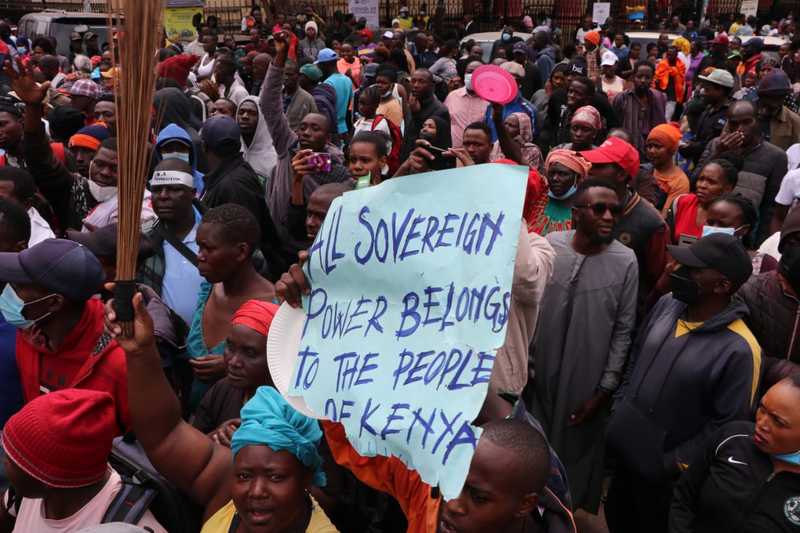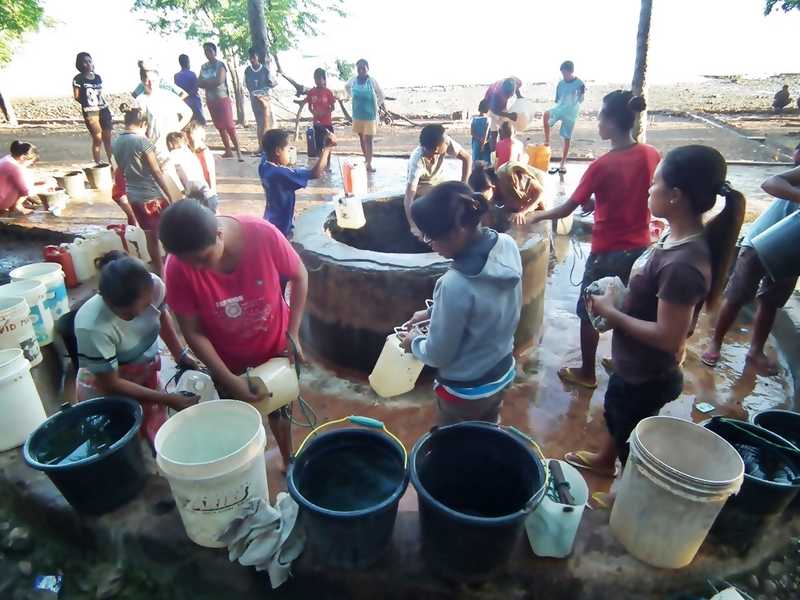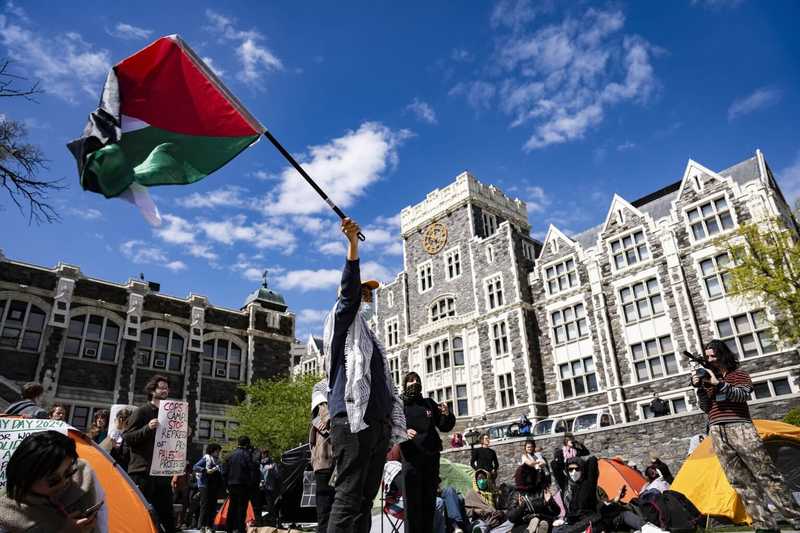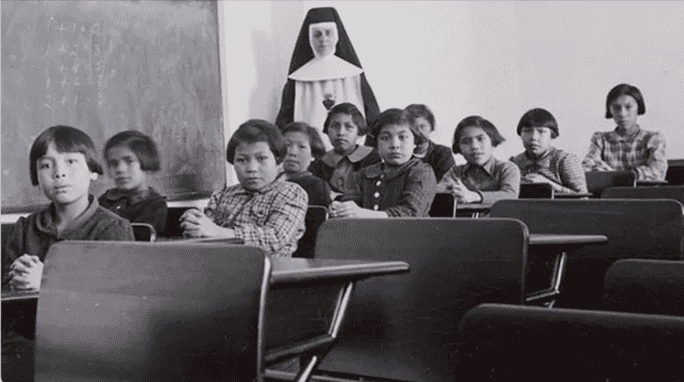
The Mathare Social Justice Centre is a community-based organization in Mathare, Nairobi that advocates for social justice and human rights documentation. A collective of social justice and human rights activists came together in 2014 to start the Mathare Social Justice Centre as a platform for grassroots social movements that connect the social struggles of urban communities with those of peasants and rural communities.
The following is MSJC's petition to the Kenyan government:
A PETITION TO HIS EXCELLENCY THE PRESIDENT OF KENYA, HONOURABLE UHURU KENYATTA, ON THE PLIGHT OF KENYANS RELATING TO THE ISSUE OF THE HIGH COST OF LIVING.
You Excellency,
We the people of Kenya petition to your office;-
ACKNOWLEDGING that the Constitution of Kenya has endowed us with the sovereignty as the people of Kenya.
COGNIZANT that our petition is within the juridical, Extra-juridical, moral and Natural laws governing our country.
CONCERNED that the high cost of living will continue to create divisions within our country and only lead to the death of the low income earners in Kenya.
AWARE that your office has the powers under the Constitution to meet the demands and appeals in this petition.
NOTING that the Country is in a financial crisis that would continue to get worse should imminent issues of Social Justice and Human Rights remain unaddressed.
COMMITTED to continue with the fight for the attainment of rights as enshrined in the Constitution
YOUR EXCELLENCY,
- Article 10 of the constitution establishes National values and principles of governance upon which the Kenyan republic is founded.
- The national Values and principles of governance of governance binds all state organs, state officers, public officers and all persons whenever any of them apply or interpret the constitution, enact, apply or interpret any law; or, makes or implements public policy decisions.
- Some of the national values and principles of governance as enshrined under Article 10(2) of the Constitution include; democracy and participation of the people, human dignity, equity, social justice, inclusiveness, equality, human rights, non-discrimination, protection of the marginalized, good governance, integrity, transparency and accountability and sustainable development.
- The said values are echoed under the preamble to the Constitution; “...RECOGNIZING the aspirations of all Kenyans for a government based on the essential values of human rights, equality, freedom, democracy, social Justice and rule of law.
- Article 19(1) of the Constitution goes further ahead to establish the Bill of Rights as the framework for social, economic and cultural policies
-
Article 21(1) provides that it is fundamental duty of the state and every state organ to observe, respect, protect, promote and fulfill the rights and the fundamental freedoms in the Bill of Rights.
-
Article 26(1) provides that every person has a right to life and further emphasis under Article 26(3) that the right to life shall not be deprived intentionally.
-
Article 27(1) of the Constitution states that every person is equal before the law and has the right to equal protection and equal benefit of the law. Article 27(2) further provides that equality includes the full and equal enjoyment of all rights and fundamental freedom.
-
Article 27(4) further provides that the state shall not discriminate directly or indirectly against any person on any ground, including race, sex, pregnancy, marital status, ethnic or social origins, color, age, disability, religion, conscience, belief, culture, dress, language or birth.
-
Article 28 further provides that every person has inherent dignity and the right to have that dignity respected and protected.
-
Article 29 provides that every person has the right to freedom and security of the person, which includes the right not be-
- a) Deprived of freedom arbitrarily or without just cause;
- b) Detained without trial except during a state of emergency
- c) Subjected to any form of violence either public or private sources;
- d) Subjected to torture in any manner, whether physical or psychological;
- e) Subjected to corporal punishment; or
- f) Treated or punished in a cruel, inhuman or degrading manner
-
Article 33 guarantees the citizens the freedom of expression.
-
Article 41 enunciates workers‟ rights to fair labor practices. Article 41(2) provides that
every worker has the right-
-
a) To fair remuneration;
-
b) To reasonable working conditions
-
c) To form, join or participate in the activities and programmes of a trade union;
and
-
d) To go on strike
-
-
Article 42(a) pronounces the right to a clean and healthy environment, which includes the right to have the environment protected for the benefit of present and future generations through legislative and other measures
-
Article 43(1) of the Constitution states that every person has the right-
-
a) To the highest attainable standard of health, which includes the right to
healthcare services, including reproductive healthcare;
-
b) To accessible and adequate housing, and to reasonable standards of sanitation;
-
c) To be free from hunger and to have adequate food of adequate quality;
-
d) To clean and safe water in adequate quantities;
-
e) To social security; and
-
f) To education
-
-
Article 42(2) then states that a person shall not be denied emergency medical treatment.
-
Article 43(3) further provides that that the state shall provide appropriate social security
to person who are unable to support themselves and their dependents.
-
Article 46(1) provides for consumer rights-
-
a) To have goods and services of reasonable quality
-
b) To the information necessary for them to gain full benefit from goods and
services;
-
c) To the protection of their health, safety, and economic interests; and
-
d) To compensation for loss or injury arising from defects in goods or services
-
-
Article 48 guarantees that the state shall ensure access to justice for all persons, and if any fee is required, it should be reasonable and not impede access to justice.
-
Article 55 states that the state shall take measures, including affirmative action programs, to ensure that the Youth-
a) Access relevant education and training.
b) Have opportunities to associate, be represented and participate in political,social, economic and other spheres of life.
c) Access employment; and
d) Are protected from harmful cultural practices and exploitation. -
Article 60 of the Constitution provides for principles of Land policy and provides that Land shall be held, used and managed in a manner that is equitable, efficient,, productive and sustainable, and in accordance with the principles of:
- a) Equitable access to land
- b) Security of Land rights
- c) Sustainable and productive management of land resources...
- d) ...
- e) Sound conservation and protection of economically sensitive areas
-
Article 61(1) further pronounces that all Land in Kenya belongs to the people of Kenya collectively as a nation, as communities and as individuals.
-
Article 69(d) provides that the state shall encourage public participation in the management protection and conservation of the environment. Further Article 69(h) that the state shall utilize the environment and natural resources for the benefit of the people of Kenya.
-
Article 95(2) of the Constitution further gives the mandate to the National Assembly to deliberate on and resolve issues of concerns to the people.
-
Article 201 of the Constitution establishes principles of public finance which amongst others include-
- a) There shall be openness and accountability, including public participation in financial matters;
- b) The public finance system shall promote an equitable society and in particular;
i. The burden of taxation shall be shared fairly
- Revenue raised nationally shall be shared equitably among national and county governments; and
- Expenditure shall promote the equitable development of the country, including by making special provisions for marginalized groups and areas;
c) The burdens and benefits of the use of resources and public borrowing shall be shared equitably between present and future generations;
- d) Public money shall be used in a prudent and reasonable way; and
- e) Financial management shall be responsible and fiscal reporting shall be clear.
ISSUES THAT GROUND OUR PETITION HIGH COST OF LIVING
Foreign Loans and the debt ‘trap’ crisis
- The loans that the Kenyan government has procured since the beginning of global financialization in the early 1970s‟ have proven to be predatory and have caused economic havoc in Kenya and other developing countries. This has continually been actualized by the use a public debt system.
- The power of finance is embodied, among others, in private banks and holding companies through interference of IMF, World Bank, credit ratings agencies, central Bank and Development Banks.
- While the World Bank controls foreign investment, the IMF prescribes Structural Adjustment programs which mandate the receiving state government to cut on public expenditure through cutting down of civil services where many Kenyans are rendered unemployed and consequently struggle with want of basic needs.
- Public spending on basic commodities like clean and safe water, healthcare, education and social security has been left to the private sector with little intervention from the government.
- Evidence has continually proven that privatization of government controlled entities has caused unemployment, ever rising poverty levels, collapse of local industries and continues to grow the divide between the rich and the poor of the country.
- Our country is infested with Multinationals which control production and the commercial sector of the economy. All these market economies have contributed greatly to the ever growing inflation in the country from agricultural products to the high taxes imposed on the imported basic necessities.
- It is evident that from the 1970s‟, Kenya‟s private, bilateral and multilateral Banks have provided a colossal volume of credit, and the loans procured have gone to unnecessary and megaprojects of infrastructure like the Standard Gauge Railway(SGR) and the workers‟ taxing projects like the Express way which hides under the guise of Public private Partnerships.
- Public debt and the dominance of the private sector in the country and in the economy has continued to punish workers heavily, with the loans affecting adversely the cost of living.
- Kenyans oppose the plot by the executive and the legislature to increase the debt ceiling.
FOOD SECURITY
- We cannot achieve food security if we have no control of our production. Agriculture is still controlled by large scale farmers while our farmers, who are the majority, are pushed away from subsidiary agriculture to international Markets farming.
- Kenya is a country with favorable conditions to grow enough food to feed the population but everyday Kenyans are dying from hunger and malnutrition and farmers making losses from their plantations.
- Food production has also been left to the mercy of market forces competing with Kenyans who can barely afford food.
- Your Excellency, the food prices have been skyrocketing alongside the price of personal necessities of Kenyans such as fuel and agricultural products.
- Kenyans have the right to be free from hunger as enshrined under Article 43 and the state, in enforcing Article 1 of the Constitution on our sovereignty.
- Kenyans are barely surviving between the crippling taxes and the high cost of living. Food is a basic need for the survival of man and should not be left in the hands of the profit hungry private sector.
UNEMPLOYMENT AND THE HIGH COST OF LIVING
Most of capable workers and farmers in Kenya are unemployed. The impact of the rising cost of living continues to affect their lives directly. Crime rates consequently increase as a result from crimes of survival.
Corruption is driving our country to financial ruin. The executive has been rudderless to say the least in matters of tackling corruption.
Expenses including those meant as special programs for young people to find government employment such as the „Kazi Mtaani‟ are marred with Corruption.
We demand that the executive take special measures to deal with the menace of unemployment in order to guarantee dignified living as enshrined under Article 28 of the Constitution.
POLICE BRUTALITY
- There continues to be systemic police killings of young people particularly from poor neighborhoods in this country as reported by various human rights organizations. Extra judicial Killings point to a broader problem of police using excessive, unlawful force in the name of maintaining law and order.
- Under the Kenyan and International law, police should only intentionally use lethal force when it is strictly unavoidable to protect life
- Extra-judicial killings, disappearances and politically motivated detentions have continually been used under the guise of solving the increasing crime rate. Police officers time and time again get away with the murder of the poor Kenyans.
- The systemic police violence issues have been ever present throughout our colonial and post-colonial history.
- There are records of police abuse of power through malicious detention intended at extortion of those who fail to confess to any false criminal activity. The young people are then subjected to ill and inhuman treatment of torture to enforce „confessions‟. The result is that our prisons are filled with poor people who cannot afford the judicial process.
- Cases of enforced disappearances have been rising in Kenya, with Human Rights Organizations warning that security forces are responsible.
- Data from Haki Africa indicates that 63 people disappeared in 2021 compared to 18 in 2020.
- We appeal to your office to set-up a judicial commission of enquiry to investigate, and bring to justice, all those suspected of criminal responsibility for extra judicial killings and enforced disappearances.
SOCIAL JUSTICE
- Social Justice means Justice for the whole of the Kenyan population in terms of accessing the basic necessities that man need to live as enshrined under Article 43 of the Constitution.
- Justice for the society can be achieved by the willingness of the state; political will to implement economic policies, to sustain an economy that would sustain basic life.
- Over the recent years, various governments have progressively taken it up, and consequently enshrined in the constitution of Kenya, Under Article 10 and further developed under Article 43 of the Constitution.
- The people of Kenya have however, failed to achieve the full enjoyment of their rights resulting from distribution of wealth and privilege in the Kenyan Society.
- Human rights and social equality are a great component that a society requires to progress. For that to happen, relations of with public institutions seem to be very important. The people of Kenya continue to live in misery, poverty and hopelessness resulting from high cost of living and poverty in demonstrations and public uproar in the recent times.
- We appeal to the government to intervene in the situation by boosting agriculture and build on the local sources of food for its people.
- Kenyans have continually addressed the shortage and lack thereof of accessibility to clean and safe water particularly in the informal settlements and urban areas
- The lack of water has consequently led/caused bacterial and waterborne infections in the areas of Kibera, Mathare, Korogocho, Kiambiu, Kasarani, Githurai, Mukuru kwa Njenga, Ruai and Ruiru.
- The structural adjustment programs (SAPs) imposed by IMF and World Bank demand for Privatization and commercialization of water. The Privatization of water compounded
with corruption and water cartels has continually created a chronic water shortage in Mathare and the broader East lands of Nairobi. Areas that have been given the name “informal” or “slums” and maintained as such have been intentionally neglected by the government in providing basic needs such as clean, safe and adequate water and sanitation provisions.
-
The state of our public health services is equally wanting. While there exists institutional Buildings, there is lacking of essential appliances and necessities such as medicinal facilities, there is a shortage of medical staff, there is lacking of medicines for the patients who end up dying of treatable diseases. There is reported cases of patients who are denied emergency treatment to allow to „more concerning‟ cases as a result of shortage of medical staff.
-
Kenyans are dying of want. The crippling of the public healthcare system is murdering the people who cannot afford medical attention in a private health care facility.
-
The public education system is also a major crisis facing the Kenyans, from the lack of equitable and considerate approach for implementation of the Competence Based Curriculum (CBC); by the leaving the financial burden entirely to the parents
-
The CBC was implemented with no proper layout or guidance, no public participation was conducted around the persons affected by the transition and to the members of the public.
-
We demand an equitable and quality free public education for our children.
-
Public housing is another growing crisis. Kenyans can hardly afford the basic need
shelter. The conditions we exacerbated by the Covid-19 pandemic where Kenyans
experience the direct hostility of Landlords.
-
Kenyans in informal settlements are living in deplorable and undignifying conditions
leaving them at the mercy of frequent fires or unlawful evictions. Kenyans in Mukuru
Kwa Njenga continue to live in tents, homeless as a result of illegally enforced evictions.
-
We demand the executive to hasten the plans for public housing affordable to the workers
and unemployed persons in informal settlements.
THE PEOPLE GRIEVANCES AND DEMANDS
- Immediate lowering of the prices of food and basic commodities, and full implementation of Mwananchi Budget:-
- ● Maize flour – KES 60;
- ● Milk – KES 40(500 ml);
- ● Bread – KES 45 (400 g);
- ● Cooking Gas – KES 800 (6kg), KES 1200 (13kg);
- ● Petrol – KES 90 (1 litre);
- ● Diesel – KES 80 (1 litre);
- ● Kerosene – KES 70 (1 litre);
- ● Sugar – KES 70 (1 kg);
- Immediate scrap-off of increased taxes on fuel and other items, and an end to increasing public debt
- Free and fair conduct of general elections, and the prevention of electoral violence
- Immediate end to police killings and brutality and State Repression
- Access to free and quality healthcare for everyone
- Provision of clean and safe water for everyone
- Provision of decent housing for everyone. Fit for a human being.
- Equitable access to jobs for everyone, and an end to mass unemployment
- Right to land for everyone, and an immediate reclamation of grabbed land and public spaces through actualization of the Ndung‟u Report.
- Provision of free menstrual hygiene towels to all women and girls.






